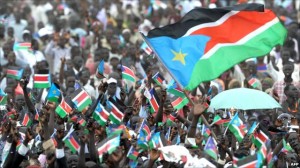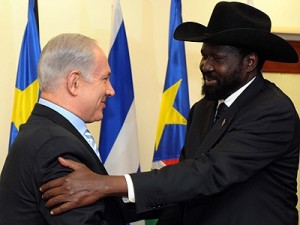Please be advised
Reports indicate that heavy gunfire and artillery were exchanged as forces belonging to Colonel Chan Garang Lual attacked Sudan People’s Liberation Army (SPLA) positions in Kapuri and Luri, west of Juba, with additional fighting and military mobilization reported in Juba’s Lemon Gaba neighborhood during the evening hours of January 4.
The SPLA confirmed in a statement on January 5 that their positions had been assaulted by “rebels” belonging to Chan Garang. Chan was additionally reported to claim responsibility for the attacks, claiming to inflict high casualties and that dozens of SPLA soldiers had defected to his forces during the events.
During the fighting, the South Sudanese government ordered that mobile providers shut down access to the 3G network and mobile internet on January 4 for “security reasons”. There continue to be disruptions to mobile internet services at the time of writing.
Sources citing a government spokesperson on January 5 indicate that additional troops have been mobilized to the western areas of Juba to reinforce security measures against the rebels, including searches of residences in the area for weapons.
Assessments & Forecast
Juba has not seen armed conflict since July 2016, when several days of fighting between the government and Riek Machar’s SPLA-IO led to the expulsion of the rebels from the capital and Machar’s flight to DRC. In the absence of rebel forces, with opposition sympathizers largely fleeing or seeking refuge at the UN Protection of Civilians (PoC) sites, Juba has been calm in the year and a half since then. Tensions were raised in November when President Salva Kiir ordered the military to disarm former SPLA chief of staff Paul Malong, was then under house arrest after being fired in May, though the standoff was ultimately resolved by Malong’s release and departure to Nairobi. Amid these events, Colonel Chan Garang Lual, an SPLA officer loyal to Malong, announced his defection from the government to engage in a rebellion against President Kiir. At the time, he stated that he was holding a position “near Juba” with his men, and this incident serves as the first confirmation that his rebel forces remained in the vicinity of the capital.
Although Chan announced when he defected that he would be joining the SPLA-IO under Machar, it remains unclear to what degree there has been any communication or organization between Chan and the main rebel movement. Given the relatively limited size of the clashes, it does not appear that Chan has assembled a larger force beyond those with whom he defected several months earlier, thought to number in the low hundreds. In this case, Chan seems to have taken action in Juba independently from Machar’s organization. Instead, with his claims of gathering new defectors, these events may have been driven by new SPLA forces defecting from the government. These soldiers may have a personal connection to Chan and, more likely, loyalty to ex-SPLA chief Malong. We assess that, despite the public announcement of joining the SPLA-IO in November, all of the developments involving Chan illustrate that the greatest threat to the status quo in South Sudan is the trajectory of Malong and his followers rather than that of the traditional armed opposition.
To this point, it is possible that the timing of Chan’s attack in Juba was deliberately aligned with recent developments in Northern Bahr el Ghazal State, Malong’s home region. President Kiir has made a series of public moves to consolidate his political support base in Aweil, appointing Malong’s rivals as top government and military leaders in that sector, and having Malong’s residence raided by SPLA troops in late December. However, days later, two SPLA officers and local government officials loyal to Malong fled to Sudan with 1,500 soldiers who joined the South Sudan Patriotic Army (SSPA) led by Agany Abdelbagi Ayii. The SSPA has been operating on the South Sudan – Sudan border for much of the year and has been suspected to be linked to Malong. In this context, this may have served as incentive or encouragement for further defections and other activity near Juba.
FORECAST: Despite the attacks in Juba, the events and players in Northern Bahr el Ghazal continue to retain the highest risk of escalation. It is unclear to what degree Malong himself is involved in the actions that his followers have taken though, at this point, it has become increasingly unlikely over the past several months that he is entirely dissociated from their actions. He continues to hold significant support among Aweil-area natives, including SPLA troops and Mathiang Anyoor militia, and could likely inspire a much greater number of defections beyond those who have been seen thus far, should conflict ignite. That thousands have already joined the SSPA, known to receive material support from Khartoum, continues to elevate the threat of renewed clashes on the Sudanese border over the coming weeks.
FORECAST: With that said, while the risks in Northern Bahr el Ghazal are high, this is less likely in Juba. Notwithstanding the January 4 fighting, the threat to the capital city is not as distinct given the balance of forces in and around the city is in President Kiir’s favor. Chan’s troops are outnumbered, by far, not only by the SPLA but by Kiir’s own Tiger Division as well as the National Security Service (NSS) forces. Although this does not rule out the potential for similar, relatively small clashes in the same area of the Juba outskirts, or near the southwestern route into the capital, this is unlikely to significantly escalate in the near term. While new developments may emerge to make a shift on the ground possible, this clashes on January 4 are insufficient to indicate a deterioration of the security conditions in Juba at this time.
Recommendations
Those traveling to South Sudan should restrict essential travel to Juba, while maintaining heightened vigilance and adhering to stringent security protocols, given high levels of crime and insecurity.
We advise against all travel outside of Juba to outlying areas of South Sudan, given the continuing clashes between the armed opposition and pro-government troops throughout the country, as well as repeated instances of inter-communal violence.





